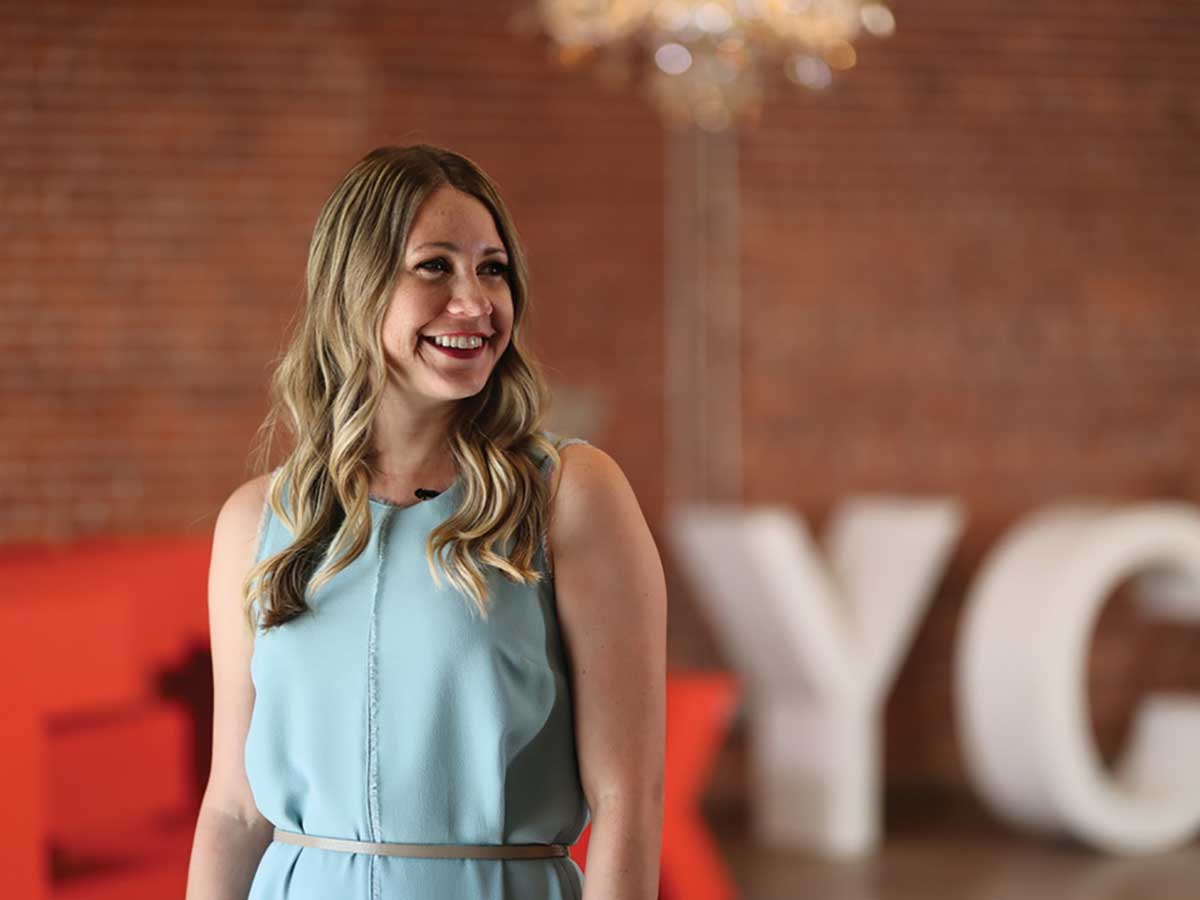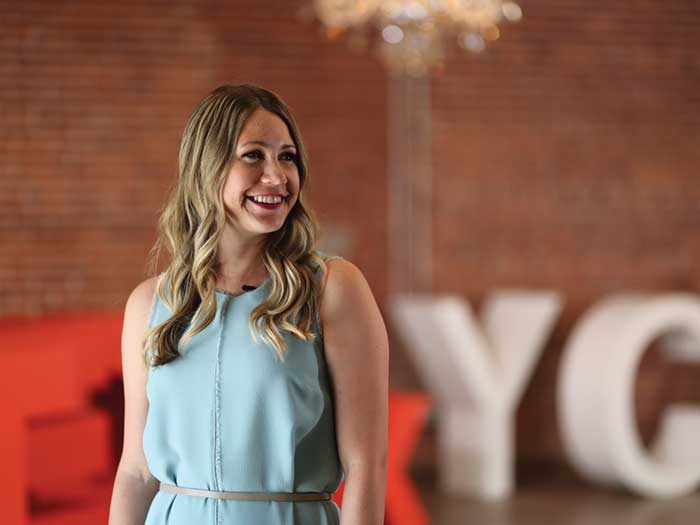
How to be a financial feminist
 Janine Rogan at a recent TED talk (Photograph courtesy of Janine Rogan)
Janine Rogan at a recent TED talk (Photograph courtesy of Janine Rogan)
When Janine Rogan was a student working toward her CPA certification, she had to train a man for the exact same role she had, which is how she discovered his salary was $13,000 higher than her own—a whopping 23 per cent difference.
“I felt like I had the wind knocked out of me,” she says. “I knew the gender wage gap existed but this was personal now.”
That experience is part of what led her to become what she calls a “financial feminist,” a term she coined that means someone who believes in financial equality for all.
After graduating from the University of Alberta in 2014 and experiencing the gender wage gap firsthand, Edmonton-born Rogan made it her mission to empower women to take control of their finances.
“Our society, which was built by men for men, has a lot of bias against women,” Rogan says.
Over the next few years, she gathered research and data on the impact the gender wage gap has on women’s bank accounts.
“When I was looking at the personal finance industry, I typically saw white men telling women, ‘the reason that you’re not wealthy is because you buy lattes every day.’ And we know that’s not true,” she says. “That’s when I really started to dig into the macroeconomic impact that the world and our financial systems have on women’s bank accounts.”
What Rogan discovered motivated her to write her debut book, The Pink Tax: Dismantling a Financial System Designed to Keep Women Broke, which came out in May. While the pink tax typically refers to the price discrepancy between men’s and women’s products (for example, women’s razors cost more than men’s), Rogan’s book delves even further into society’s economic impacts on women, from getting a car at a dealership and being quoted higher prices to being paid less and how that impacts earning potential. It’s a domino effect; when women have less money to start with, plus the pink tax, they have less disposable income, which means less money to save, invest and build wealth.
Rogan’s goal is to empower women to take charge of their finances in spite of societal pressures. “Society tells women not to be involved in their money—that it’s a taboo subject, or rude,” she says. Being a financial feminist means being empowered to make financial decisions. “You need to be involved with your money, and ultimately, accumulate wealth so that you can make positive change in the world,” she says.
While her passion is all about empowering women, Rogan says there’s a role for everyone to play in making our world more equitable. There’s a role for men to play in making sure that women have equal seats at the table and are being involved in financial decisions, and that women are being paid fairly. Companies need to step up as well when it comes to supporting women building their wealth through actions such as pay transparency and having childcare on site. On a global scale, it’s important to consider the policies we vote for.
“If we're going to continue to grow and make money as a country, we should get to a point where we’re actually positively impacting the human beings that live in our society,” she says. “What is the point of continuing to earn and grow as a country if we’re not helping those who are struggling to find affordable, accessible childcare?”
If you want to start taking control of your personal finances to ultimately build wealth, Rogan recommends reading books and articles, and talking to friends and family about money. As awkward as it can feel, having honest financial conversations gives women confidence to try things, she says. There are also a lot of online resources where people can learn about financial topics like investing. Rogan herself teaches a course on how to invest, and points out that there are also lots of great content creators on social media who can teach you how to get more involved in your money. Rogan’s website even offers a free downloadable checklist of 30 things that you can do. If you’re feeling overwhelmed, remember that you don’t need to do everything at once. Rogan suggests picking just one thing from her list that you can do each month, such as opening a high-interest savings account (a great first step, she says). Once you start to make some progress, you'll start to gain momentum and maybe you can do two things in a month.
“By the end of the year, you’ll have done a lot for your personal financial situation and hopefully you’ll be on the way to building wealth for your future,” she says.
MORE ON WOMEN AND FINANCE
Check out CPA Canada’s financial literacy sessions for women, which are meant to help women gain financial confidence and become excellent money managers. And find out how CPA Lana Paton is helping women find success in the upper ranks of business.